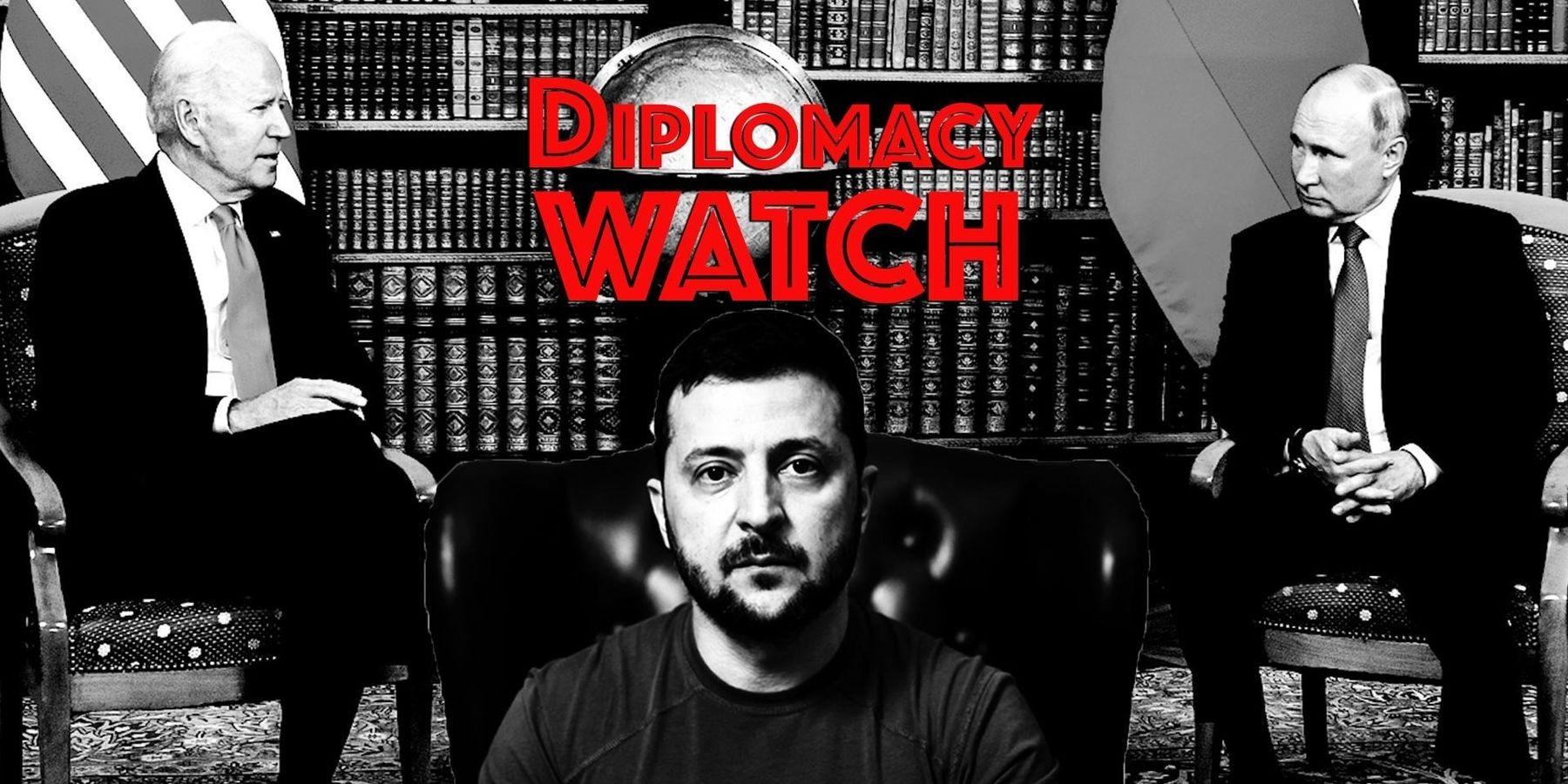As November’s election approaches, the Ukrainian government and NATO member countries are planning for the possibility that European and American leadership may be less enthusiastic about supporting Kyiv’s war effort.
Meanwhile, Trump’s team-in-waiting is preparing for how it might deal with the thorny issues of rethinking the NATO alliance and managing the war in Ukraine.
Hungarian Prime Minister Viktor Orban visited Ukraine for the first time since the outbreak of the war on Tuesday, shortly after his country began its six-month rotation in the EU presidency.
Orban, who has worked against other EU and NATO members’s efforts to support Kyiv and punish Moscow, reportedly pitched the idea of an immediate ceasefire to his Ukrainian counterpart this week.
“The rules of international diplomacy are slow and complex. I asked the president to consider whether it would be possible to reverse the order and to speed up the peace negotiations with a swift ceasefire,” the Hungarian Prime Minister said after the meeting.
Meanwhile, Zelensky is warily watching world events and reading the signals and preparing for the possibility of a second Trump presidency, experts say.
“Zelenskyy can read the room. He saw the U.S. presidential debate and the outcome of the first round of the French and EU elections — and knows that if he wants to sustain support he has to work with the full cast of characters,” Andrea Kendall-Taylor, a senior fellow at the Center for a New American Security, told Politico this week.
NATO, whose leaders will gather in Washington next week for its annual summit, has been working for months to “Trump-proof” the alliance’s support for Kyiv, but questions about how much money to commit and from whom remain. Foreign Policy magazine reported recently that Washington had provided nearly half of the alliance’s 40 billion euros in aid each year over the last two years.
Politico also ran a detailed story this week on how Trump’s potential advisers may approach transatlantic relations, which suggests big change if the former president returns to power in 2025. In addition to plans for a “radical reorientation” of the United States’ role in the alliance, the piece reports that a future Trump White House could pledge to Moscow that NATO will not expand eastward.
“A swift resolution of the two-and-a-half-year Ukraine conflict would also likely play a key role in Trump’s plans for NATO,” according to Politico. “As part of a plan for Ukraine that has not been previously reported, the presumptive GOP nominee is mulling a deal whereby NATO commits to no further eastward expansion — specifically into Ukraine and Georgia — and negotiates with Russian President Vladimir Putin over how much Ukrainian territory Moscow can keep, according to two other Trump-aligned national security experts.”
Trump himself has stayed mostly noncommittal about how exactly he plans on ending the war — only saying that Europe should carry more of the burden for helping Ukraine, that the war wouldn’t have happened under his watch and that, if elected again, he would have it resolved before assuming the presidency.
In other diplomatic news related to the war in Ukraine:
— Russia’s ambassador to the United Nations poured cold water on Trump’s assertions that the conflict could be solved quickly and easily. “The Ukrainian crisis cannot be solved in one day,” Vassily Nebenzia told reporters on Monday. During the same remarks, Nebenzia said that Zelensky’s ten-point peace formula that remains Ukraine’s official proposal is “not a peace plan but a joke.”
— Zelensky renews his calls for more long-range weapons and air defenses following a Russian missile attack in Vilniansk that killed seven and injured 31 others. “Our cities and communities suffer daily from such Russian strikes” Zelensky wrote in a post on Telegram, according to the BBC. “But he added that there were ‘ways to overcome this’, including ‘destroying Russian missile launchers, striking with real long-range capability and increasing the number of modern air defence systems.’”
— Putin met with Chinese President Xi Jinping during the annual Shanghai Cooperation Organization meeting on Wednesday in Kazakhstan. The two nations were joined at the meeting by organization members Iran, India, Pakistan, Kazakhstan, Kyrgyzstan, Tajikistan and Uzbekistan, as well as Turkey, Saudi Arabia and Egypt, who were present as observer states.
“Neither Ukraine nor any of its Western backers are attending, and major talks — or breakthroughs — on the war are not expected,” according toThe Associated Press. “But because it’s rare these days for any meeting to include the heads of Russia, China, Turkey and the U.N., the possibility of talks about the war might be raised, at least on the peripheries of the summit, probably behind closed doors.”
— Three Ukrainian officials, including top Zelensky adviser Andriy Yermak, visited Washington this week to meet with members of the Biden administration, including Secretary of State Antony Blinken in advance of next week’s NATO summit. During this visit, Yermak said that Kyiv was open to taking advice on how to achieve a “just peace” with Moscow. But, he added “we [are] not ready to go to the compromise for the very important things and values ... independence, freedom, democracy, territorial integrity, sovereignty."
U.S. State Department news:
— During a Tuesday press briefing, State Department deputy spokesperson Vedant Patel rejected Orban’s suggestion that Kyiv and Moscow reach an immediate ceasefire.
“We and the NATO Alliance have been clear that there really is only one solution here, and that is the Russian Federation simply leaving Ukrainian territory,” Patel said. “We have long felt that this is, again, just another example of Russia being the aggressor, infringing on Ukrainian territorial integrity and sovereignty, throwing the UN Charter by the wayside.”
















